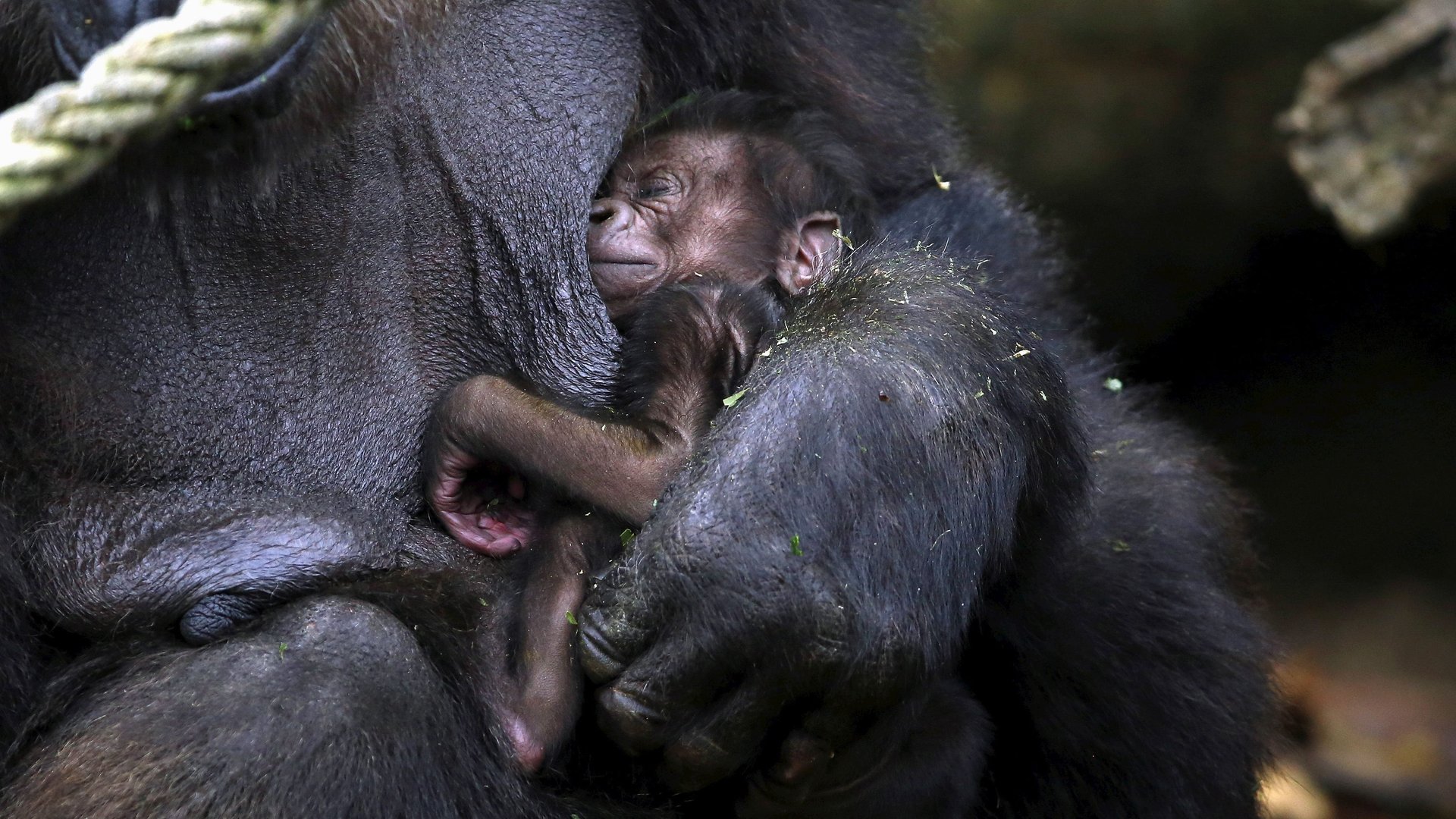Maybe Piers Morgan should watch gorilla dads in action
If TV personality Piers Morgan were a gorilla, he would probably be less successful at procreating than other gorillas, according to new research and leaps in logic I am willing to make for this post.


If TV personality Piers Morgan were a gorilla, he would probably be less successful at procreating than other gorillas, according to new research and leaps in logic I am willing to make for this post.
Morgan, who is a father to four children, stated on Good Morning Britain last week that he would never be seen carrying a child in a baby sling, sometimes called a papoose, because that would be unmanly. Caring for an infant by strapping it to one’s chest, he explained, is so emasculating that even the mother of said infant is forever repulsed by the papoose-wearing man, and never “fancies” him again (Morgan is British).
Research published Monday (Oct 15) in the journal Nature found that male mountain gorillas who spent the most time affectionately tending to infants, even if those children were not their own, went on to sire 5.5 times as many offspring on average as male gorillas who were least interested in tending to infants in the community. Which is to say the female gorillas, and whatever other forces govern reproductive achievement among gorillas, rather fancied outwardly affectionate fathers and father-figures.
This discovery came from watching mountain gorillas in Rwanda’s Volcanoes National Park. Some males spent a surprising amount of time and effort cuddling, grooming, or playing with infant gorillas.
“I often describe it as babysitting,” Stacy Rosenbaum, an anthropologist at Northwestern University and lead author on the study, told Ed Yong at the Atlantic.
The male gorillas “can be very gentle, or even loving,” Rosenbaum said. “Even males who aren’t interested will let infants climb on their back, or sit under them while eating…. It’s certainly not the stereotypical image you have of male mountain gorillas.”
The correlation between this sort of behavior and having more offspring contrasts with the conventional wisdom about male animals’ priorities when it comes to reproduction. “Social relationships between adult males and infants are quite rare among group living mammals, due to the relatively high payoffs for males of investing in mating rather than parenting,” Rosenbaum and her colleagues write in the paper. But the results “suggest a strategy by which selection could generate more involved male parenting.”
Toxic masculinity, it seems, could really use a mountain gorilla moment.